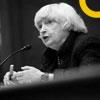Cryptocurrencies Pose Greater Risk to Dollar Than BRICS Currency: WEF Chief

News Synopsis
At a time when debates around de-dollarisation and the creation of a potential BRICS currency are dominating global economic discussions, World Economic Forum (WEF) President Børge Brende has presented a different perspective. Speaking in an exclusive conversation with India Today TV, Brende emphasized that cryptocurrencies, rather than geopolitical currency blocs, pose a more substantial and immediate challenge to the dominance of the US dollar.
Cryptocurrency vs BRICS: The Real Challenge to the Dollar
Brende dismissed the likelihood of a BRICS-led currency dethroning the dollar anytime soon. Instead, he pointed to the rapid growth of cryptocurrencies and their increasing acceptance across the globe as a potential disruptor.
“The dollar is still very competitive. But Mr Trump is also very open for cryptocurrency. He has changed a lot of laws now to open up for more crypto. So maybe, cryptocurrency, I think, is a bigger challenge to the dollar than potential BRICS currency,” World Economic Forum (WEF) President Børge Brende said.
This remark highlights two crucial points:
-
The resilience of the US dollar in the near term.
-
The growing policy support for cryptocurrencies, especially under Donald Trump, who has relaxed regulatory restrictions to encourage crypto adoption.
Why a BRICS Currency Faces Roadblocks
The BRICS bloc—Brazil, Russia, India, China, and South Africa—has frequently raised the idea of establishing an alternative reserve currency. The move aims to reduce reliance on the dollar in international trade.
However, most economists remain sceptical due to:
-
Diverging national interests among BRICS members.
-
Lack of financial and monetary integration.
-
The absence of a shared framework for currency stability and liquidity.
As a result, while the idea has symbolic significance, experts argue that its practical implementation remains far-fetched.
Cryptocurrencies: A Growing Parallel System
Unlike the BRICS proposal, cryptocurrencies are already creating real-world impact. With regulatory support in the US and increasing global investment in blockchain-based assets, digital currencies may emerge as a parallel financial ecosystem.
Brende suggested that this technological innovation could become a more disruptive force for the global monetary system than any political initiative. Cryptocurrencies, by enabling decentralized trade and capital flows, could gradually erode the dollar’s exclusivity in international transactions.
India’s Economic Role in the Shifting Global Order
The conversation also touched upon India’s economic rise. Brende called India the largest single driver of global growth, contributing nearly 18%, and described the country’s momentum as “exporting prosperity” worldwide.
On trade relations with the US, Brende expressed optimism:
“In the longer term, it is in both countries’ interest to find a good way of trading with each other.”
He characterized recent tariff disputes between India and the US as temporary, emphasizing that long-term cooperation is mutually beneficial.
China’s Position and India’s Sweet Spot
Brende acknowledged that China remains resilient, with projected growth of around 4–5%, and continues to lead in solar, electric vehicles, and advanced manufacturing.
However, he stressed that India holds a unique “sweet spot” with strengths in services, digital trade, and manufacturing. To maintain momentum, he said, access to large markets such as the US and European Union will be vital for India.
The Future of the Global Monetary System
Brende ultimately reinforced the enduring dominance of the US dollar, while noting emerging stress points.
“De-dollarisation is not so likely in the near future,” he said, underlining that the dollar remains secure for now.
Yet, he also warned that the real challenge may come from technology rather than geopolitics, as cryptocurrencies continue to expand their influence in global finance.
Conclusion
The WEF President’s remarks underscore a shifting narrative: while political alliances like BRICS may aspire to reduce dollar dependence, the real test to the greenback’s supremacy could come from cryptocurrencies. With Donald Trump’s regulatory easing, growing investor participation, and increasing global acceptance of decentralized finance, crypto may gradually evolve into a competing force in the world economy.
Meanwhile, India’s rising role as a growth engine and China’s steady industrial lead highlight how the global balance of power is changing. But for now, the dollar continues to anchor the global monetary system, even as digital currencies signal an era of potential disruption.









